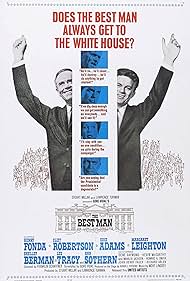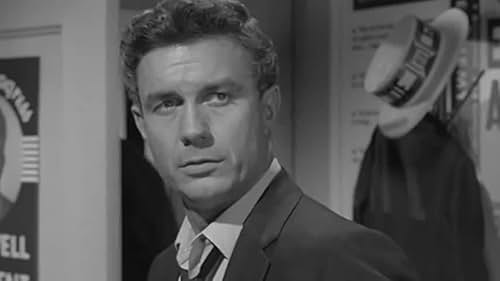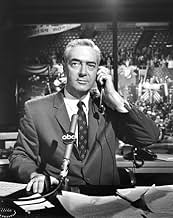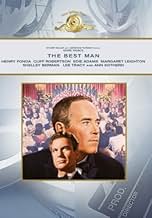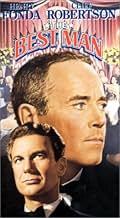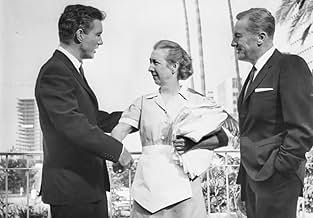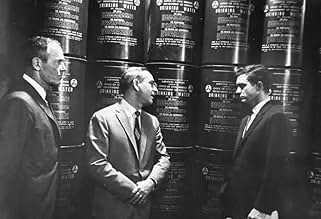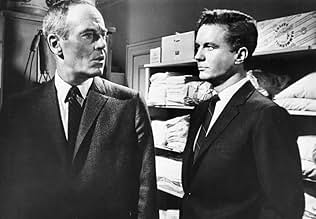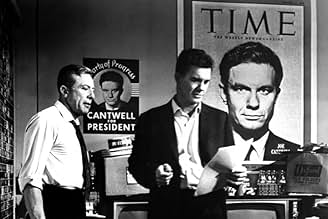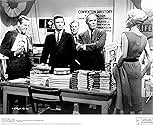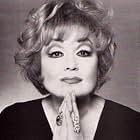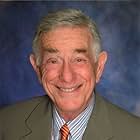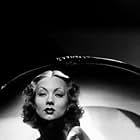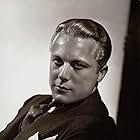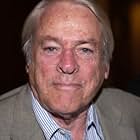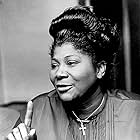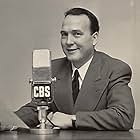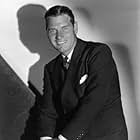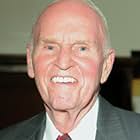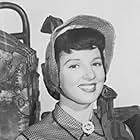IMDb RATING
7.6/10
3.9K
YOUR RATING
The two front runners for their party's presidential nomination, one principled and the other ruthless, vie for the former president's endorsement.The two front runners for their party's presidential nomination, one principled and the other ruthless, vie for the former president's endorsement.The two front runners for their party's presidential nomination, one principled and the other ruthless, vie for the former president's endorsement.
- Nominated for 1 Oscar
- 1 win & 5 nominations total
Penny Singleton
- Mrs. Claypoole
- (scenes deleted)
Anne Newman Bacal
- Janet
- (as Anne Newman)
Storyline
Did you know
- TriviaScreenwriter and the film's source playwright Gore Vidal cheerfully admitted that he meant the character of William Russell (Henry Fonda) to remind people of Adlai Stevenson and that Joe Cantwell (Cliff Robertson) was based on Richard Nixon. Stevenson and Nixon were, of course, in different American political parties, Democrat and Republican respectively. Similarly, the character of former President Art Hockstader played by Lee Tracy, bore resemblances to both former Republican U.S. President Dwight D. Eisenhower and former Democrat U.S. President Harry S. Truman.
- GoofsDuring the roll call, the chairman of the Pennsylvania delegation begins his announcement by saying "Mr Chairman, the State of Pennsylvania....". Pennsylvania is actually a Commonwealth, and any leading politician would refer to it as such.
- Quotes
Joe Cantwell: I don't understand you.
William Russell: I know you don't. Because you have no sense of responsibility toward anybody or anything. And that is a tragedy in a man, and it is a disaster in a president.
- Crazy creditsDuring the opening credits, a picture of every single U.S. President appears in order, from George Washington to Lyndon Johnson.
Featured review
The Best Man in a sense was dated before it ended its Broadway run of 520 performances in the 1960-1961 season. John F. Kennedy with his string of primary victories had the nomination almost decided before the Democrats met in Los Angeles that year to nominate him. After that, money raised and spent wisely in primaries decided nominations in both parties long before the conventions met. The last convention where there was a semblance of a contest was the 1976 Republican convention where it was not certain until the balloting that Gerald R. Ford would be the GOP candidate.
This film takes us back to the era of the smoke filled room although candidate Cliff Robertson pointedly tells former president Lee Tracy that he does not smoke. We've got two candidates at this fictional Democratic convention circa the sixties. One is Henry Fonda former Secretary of State, an intellectual in politics modeled on Adlai E. Stevenson and Cliff Robertson a no nonsense street fighter of a U.S. Senator that Joe McCarthy was the prototype.
By the way back in those days Joe McCarthy could easily have been a Democrat. Note that Robertson has the support of the lily white south in the era before the civil rights revolution. Minor candidate John Henry Faulk, a southern governor, is most concerned about mandated integration of his state's public schools. Back then the Dixie part of this country had a big influence in the Democratic party, the Republicans were almost moribund in many southern states. But they were a growing force.
Neither Fonda or Robertson really understands the motivations of the other. They're both courting the support of Lee Tracy a former Truman like president. In actual fact, Truman counted for very little once he was out of the White House. He anointed no successor in 1952 and in 1956 and 1960 his candidates were W. Averill Harriman and Stuart Symington respectively and both came up very short.
Fonda and Robertson both have dirt of varying degrees on the other. Fonda's dirt is supplied by former army buddy of Robertson's Shelley Berman who says that Robertson was gay. As it turns out Robertson ratted out a bunch of gay men in the service and got smeared in retaliation with the label. That sad to say has not changed even with don't ask don't tell in the Defense Department.
Fonda and Robertson's roles on Broadway were played by Melvyn Douglas and Frank Lovejoy. Lee Tracy who was the only carry over from Broadway, won a Tony Award and was nominated for an Oscar, but lost to Peter Ustinov for Topkapi. Tracy's is a finely etched portrayal of a bitter old man now out of real power and seeing his power to control events slipping by. Made even more bitter by the fact that he reads the characters of Fonda and Robertson very well, but can't influence either.
Gore Vidal aided in the transition of his play to the screen and it survived the journey from Broadway none the worse for wear. It's a fascinating look at a bygone era of politics when the national conventions meant something as opposed to being the media shows they are today.
In which we hope then as now that The Best Man will win out.
This film takes us back to the era of the smoke filled room although candidate Cliff Robertson pointedly tells former president Lee Tracy that he does not smoke. We've got two candidates at this fictional Democratic convention circa the sixties. One is Henry Fonda former Secretary of State, an intellectual in politics modeled on Adlai E. Stevenson and Cliff Robertson a no nonsense street fighter of a U.S. Senator that Joe McCarthy was the prototype.
By the way back in those days Joe McCarthy could easily have been a Democrat. Note that Robertson has the support of the lily white south in the era before the civil rights revolution. Minor candidate John Henry Faulk, a southern governor, is most concerned about mandated integration of his state's public schools. Back then the Dixie part of this country had a big influence in the Democratic party, the Republicans were almost moribund in many southern states. But they were a growing force.
Neither Fonda or Robertson really understands the motivations of the other. They're both courting the support of Lee Tracy a former Truman like president. In actual fact, Truman counted for very little once he was out of the White House. He anointed no successor in 1952 and in 1956 and 1960 his candidates were W. Averill Harriman and Stuart Symington respectively and both came up very short.
Fonda and Robertson both have dirt of varying degrees on the other. Fonda's dirt is supplied by former army buddy of Robertson's Shelley Berman who says that Robertson was gay. As it turns out Robertson ratted out a bunch of gay men in the service and got smeared in retaliation with the label. That sad to say has not changed even with don't ask don't tell in the Defense Department.
Fonda and Robertson's roles on Broadway were played by Melvyn Douglas and Frank Lovejoy. Lee Tracy who was the only carry over from Broadway, won a Tony Award and was nominated for an Oscar, but lost to Peter Ustinov for Topkapi. Tracy's is a finely etched portrayal of a bitter old man now out of real power and seeing his power to control events slipping by. Made even more bitter by the fact that he reads the characters of Fonda and Robertson very well, but can't influence either.
Gore Vidal aided in the transition of his play to the screen and it survived the journey from Broadway none the worse for wear. It's a fascinating look at a bygone era of politics when the national conventions meant something as opposed to being the media shows they are today.
In which we hope then as now that The Best Man will win out.
- bkoganbing
- Feb 4, 2007
- Permalink
- How long is The Best Man?Powered by Alexa
Details
- Runtime1 hour 42 minutes
- Color
- Aspect ratio
- 1.66 : 1
Contribute to this page
Suggest an edit or add missing content

